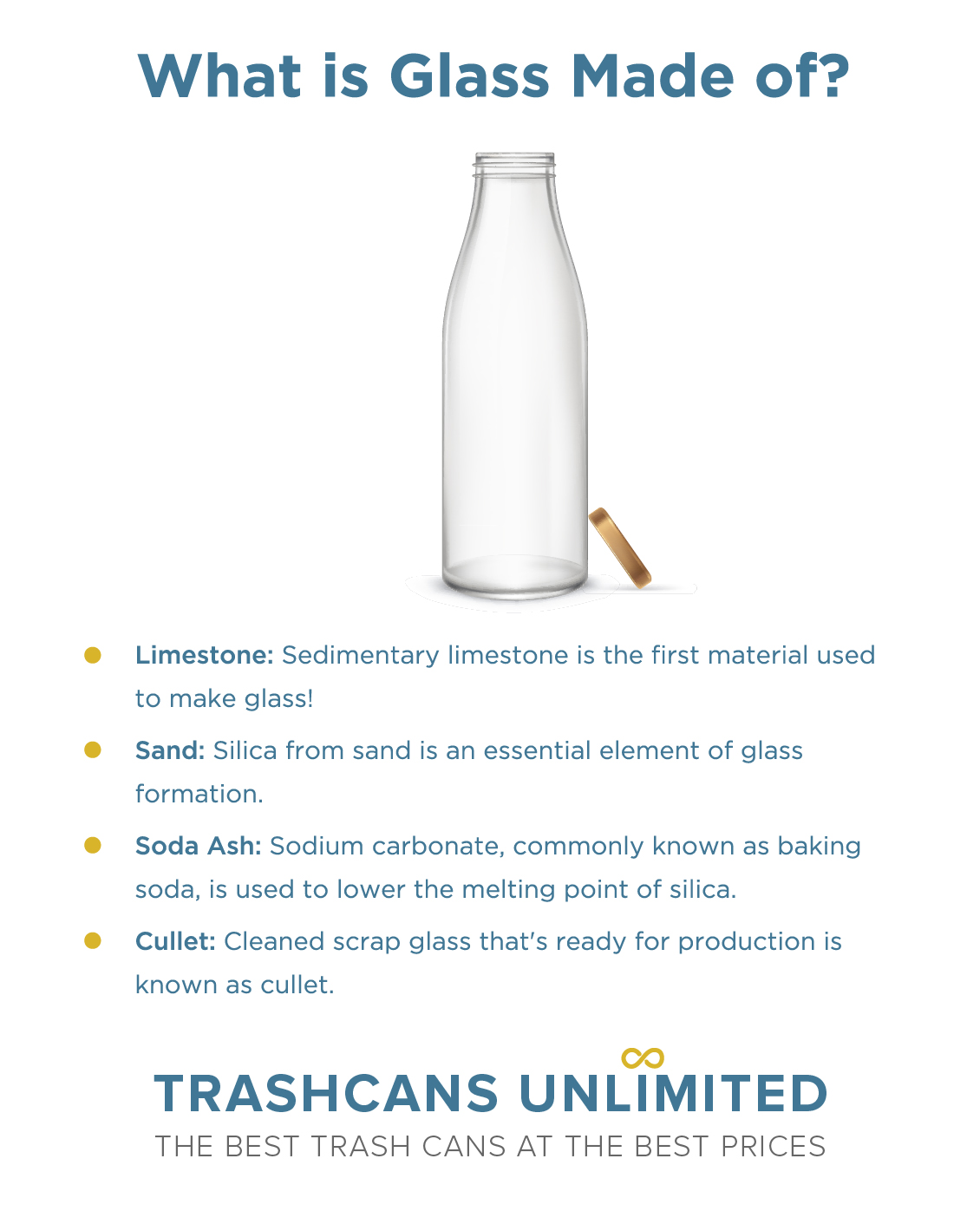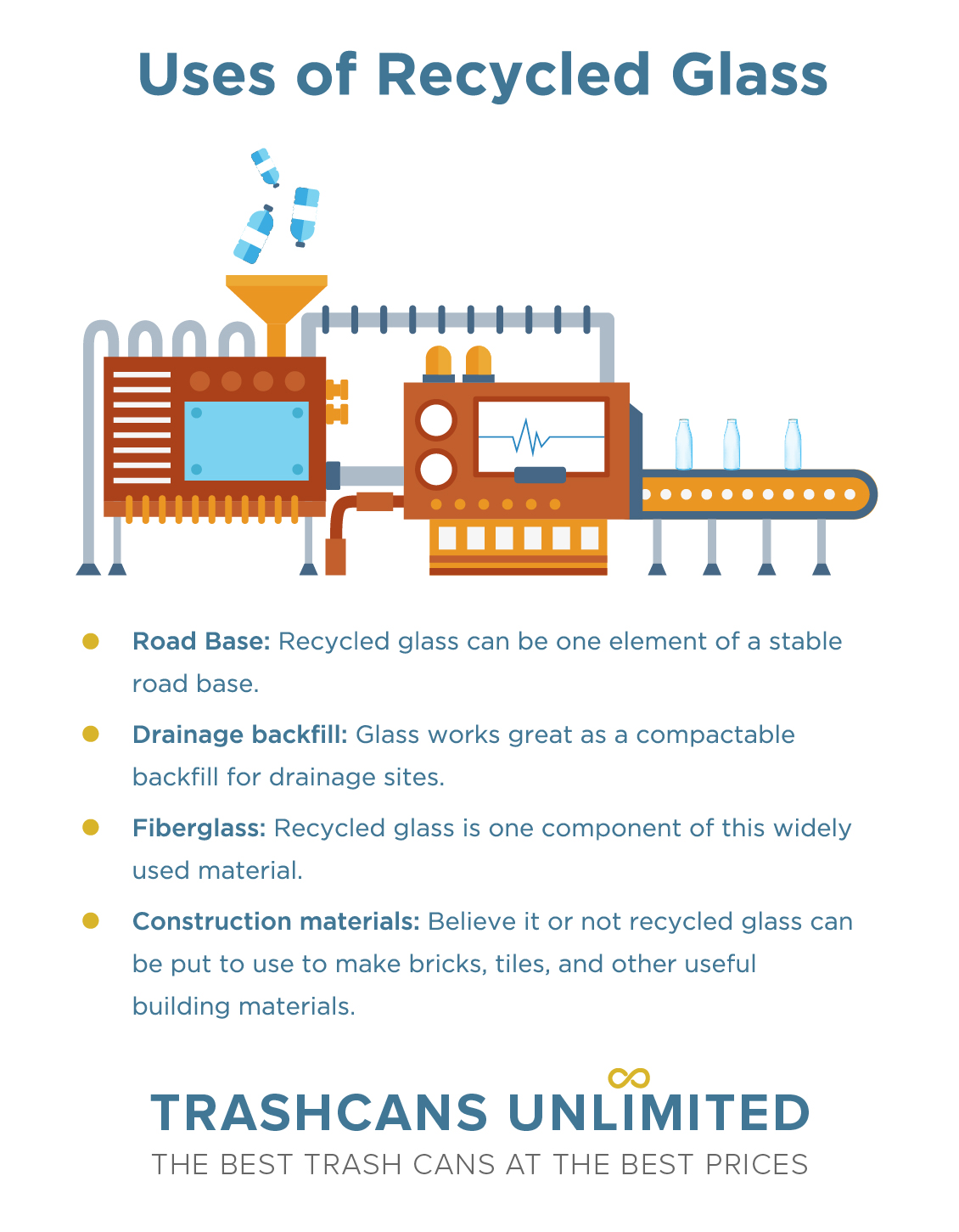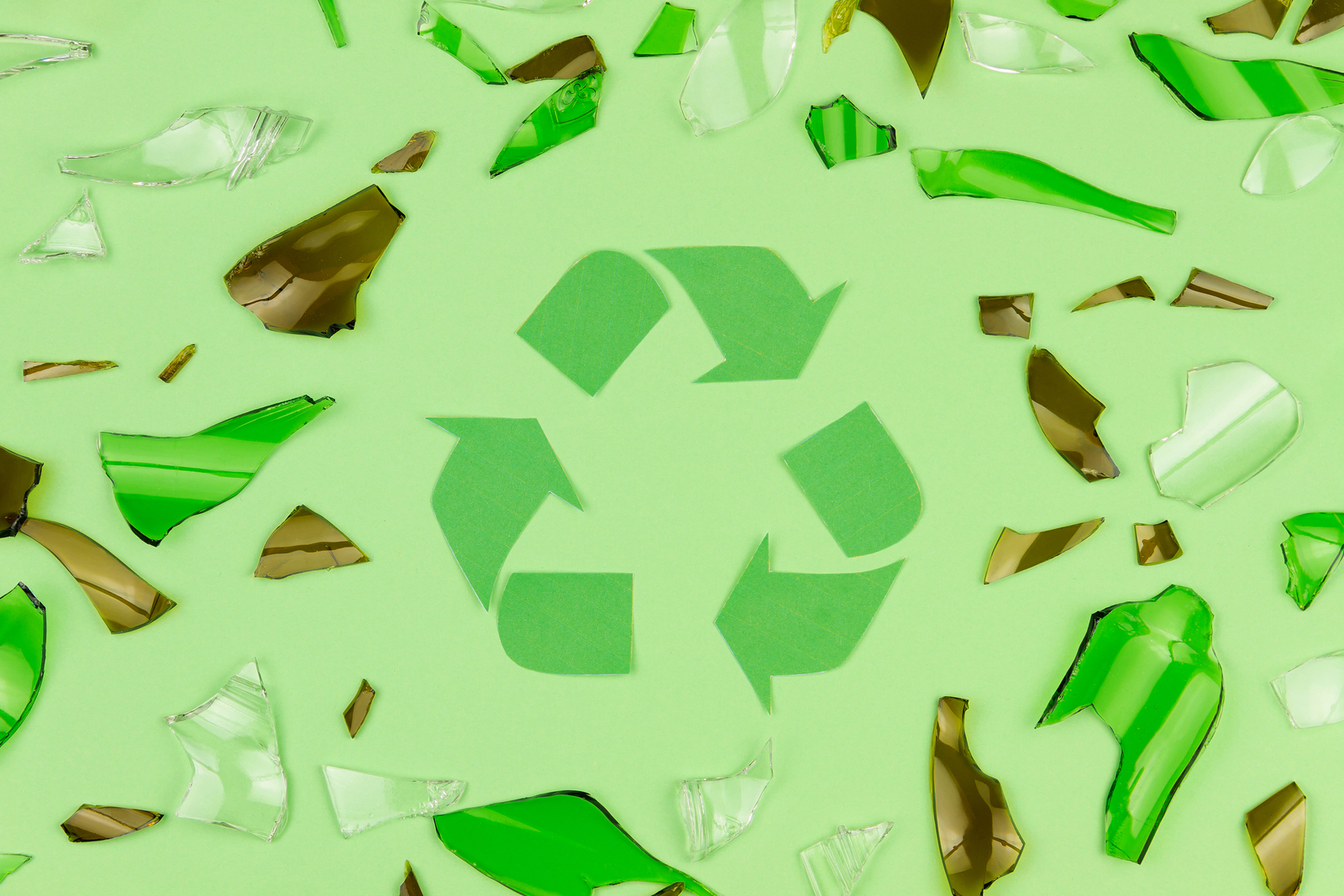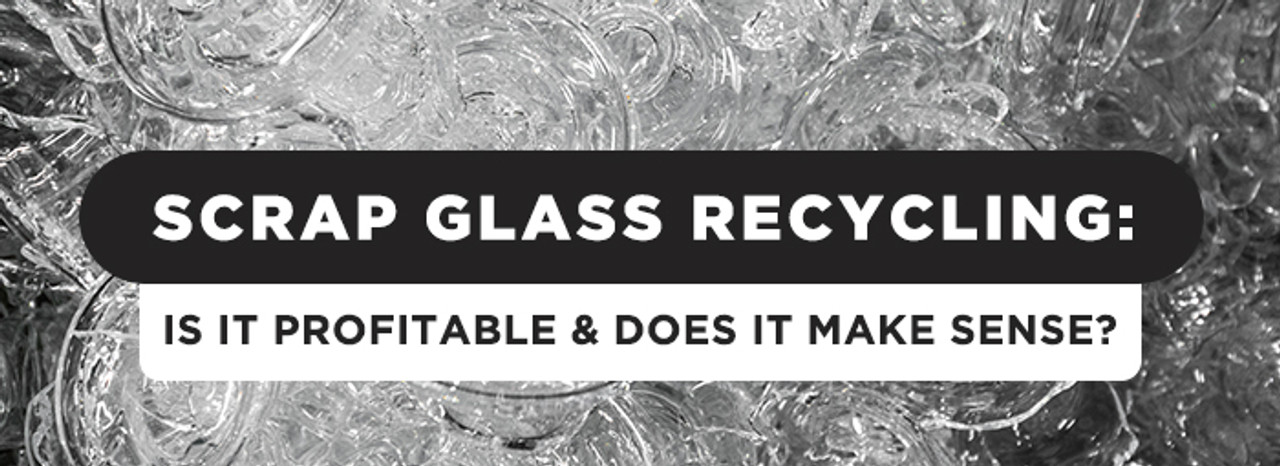Glass recycling is something that many people know about--in fact, your city likely has a glass recycling program. But what is glass recycling? Where does the glass go? What are its uses? In this post, we’ll talk about the potential profitability of scrap glass recycling, what it is, and whether or not it’s a practical or sensible method for dealing with waste glass.
What is scrap glass recycling?

Scrap glass recycling refers to a process of taking used glass, and turning it into useful recycled glass products. But first, what is glass made of?
- Limestone - The first of the materials required to create glass. It’s a sedimentary rock that is often composed of skeletal fragments of marine animals like coral, and is a huge source of calcium carbonate.
- Sand - The main thing that you get from sand when trying to produce glass is silica, which is an integral part of the formation of glass.
- Soda ash - You might recognize soda ash as baking soda, or sodium carbonate. It’s a compound that historically was gathered from the ashes of plants that grew in sodium rich soil. Soda ash lowers the melting point of silica so that it can be melted without specialized equipment.
- Cullet - Cullet is the industry term that’s used for cleaned scrap glass that’s ready to be used in the glass production process. Usually, it is broken down into uniform sizes, and sorted by different colors and grades.
Lest you think that cullet is only a small part of the glass production process, recycled glass (cullet) is substituted for up to 70% of the raw materials used in making new glass, and 80% of recycled glass is made into new glass materials. Glass recycling is a highly efficient process that results in a major value add, given the proper infrastructure.
Uses of scrap glass

Recycled glass has many uses, one of which (creating new glass containers) we talked about above. But there are additional uses for recycled glass as well.
- Road base - Roads are made of layers of different materials, and recycled glass can become a big part of the aggregate when creating a stable road base for highways and streets.
- Drainage backfill - When drainage ditches are dug for sewers and other drainage sites, they need to be backfilled with a compactable material, and recycled glass fits the bill nicely.
- Fiberglass - Fiberglass is a strong, easily moldable, and flexible material that has a wide variety of uses, from airplanes to building construction. Recycled glass is part of the fiber weaving process that makes the marriage between plastic and glass possible for this material.
- Construction materials - In addition to being an integral part of fiberglass, recycled glass can be used to create bricks, tiles, and other construction materials.
Facts about recycling glass and profitability

So, now the million dollar question: is glass recycling profitable?
Unfortunately, the answer is more complicated than a simple yes or no. As of 2014, the glass recycling industry employs more than 1.1 million people, and generates $236 billion in gross revenue. It’s a hugely profitable industry, but like many industries, the forces of the market can affect how valuable a commodity is.
Profitability depends on whether or not there is a market for the purchasing of scrap glass. As many manufacturers are moving away from glass bottle production, that greatly reduces the profitability of scrap glass recycling. Additionally, many manufacturers are not using as much glass in their production processes, often switching to more favorable materials. Many municipalities are adjusting and removing their glass recycling programs in response, as lack of demand makes the programs costly for taxpayers.
But as far as the facts go, glass is one of the most eminently recyclable materials around, and unlike many other materials, can be nearly completely repurposed over and over again. Profitability and usability are often two different things, however, which we’ll talk about now.
Does it make sense?

Recycling almost always make sense--we have access to a finite amount of resources, and being conservative about those resources and trying our best to reintegrate them into a chain of usage is important for maintaining quality of life for the most people. Discovering the sheer volume of recycled materials can be astounding!
But, glass recycling only makes sense as long as there is a use and a glass recycling market for it. Without that market, the enterprise itself becomes unsustainable. So, the key is to encourage glass consumers to recycle that glass, as well as providing incentives for corporations and other stakeholders to utilize recycled glass. Glass recycling prices only remain reasonable as long as there is a market, and glass recycling companies can run a profit.
If you live in an area that does glass recycling, and you need a good source of recycling bins, Trashcans Unlimited is your best and last stop for finding the cans that you need to dispose of materials properly. Check out our explanatory guide on waste-to-energy plants to understand the recycling supply chain further. Get in touch with us to find out more, or browse our product lines. And, if you’re looking for glass recycling drop off near you, here is a helpful tool.

